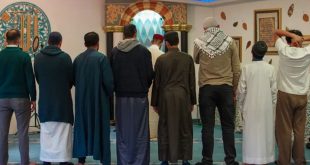Please tell me what the penalty is for one who doesn’t intend to fast in the month of Ramadan according to the Ahlul-Bayt school of though. If a person for some reason (like fasting being hard, or the day being too long, or because of being busy with studying and working) can’t fast, has he/she committed a sin? Please tell us what your fiqhi standpoint is regarding this issue according to Islamic traditions.
One whom fasting has been made obligatory upon in the holy month of Ramadan (one who bears all the conditions), yet doesn’t intend on fasting doesn’t have any punishment/penalty, unless he/she executes this intention and practically doesn’t fast, or breaks the fast (of course, one of the conditions for the validity of the fast is to have the intention for fasting before dawn [in Ramadan], so it can be said that if a person purposely doesn’t make the intention to fast, his/her fast will be void and this ruling will also apply). In this case, in addition to making up for the day he/she has missed, he/she is responsible for kaffarah (atonement) as well for every day of wajib fast that he/she hasn’t observed. The kaffarah is for him/her to do one of the following:
1- 60 days of fasting (31 days of which must be done consecutively) for each day purposely and knowingly missed/broken.
2- Freeing a slave (In this time and era this option isn’t applicable due to there being no slaves).
3- Feeding 60 poor people until they are full for each day.
In the case of one not being able to do any of the three, he/she must ask Allah (swt) for forgiveness and repent.[1]
—————————————————————————————————–
References
[1] Tawdihul-Masa’el (annotated by Imam Khomeini), vol. 1, pg. 928, issue 1660.
 Ijtihad Network Being Wise and Faithful Muslim in the Contemporary World
Ijtihad Network Being Wise and Faithful Muslim in the Contemporary World
